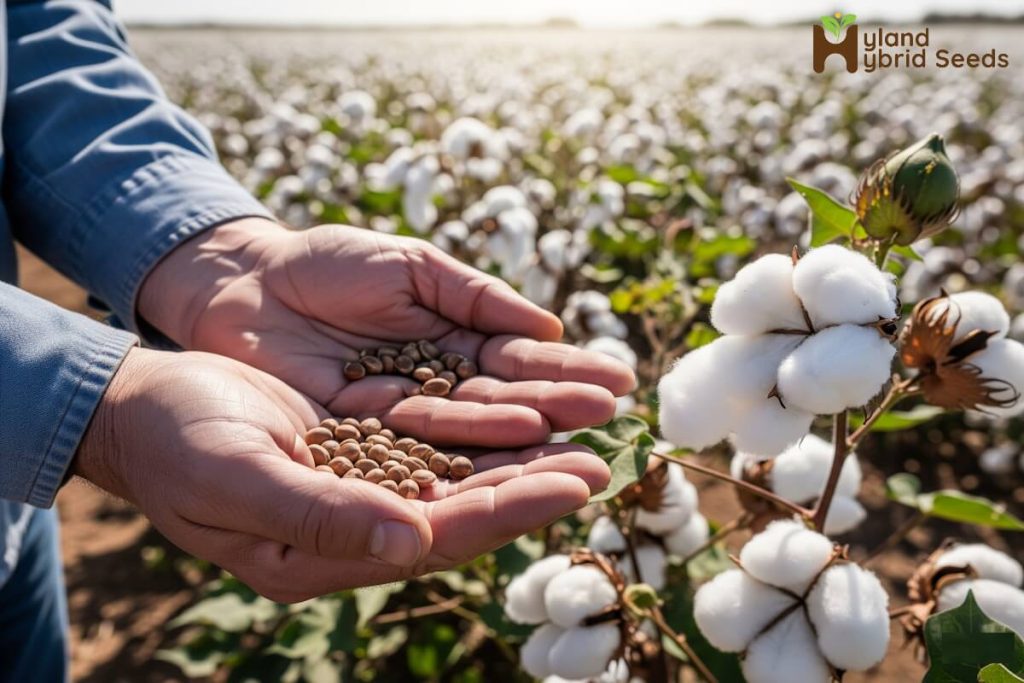Why Farmers Trust Hybrid Cotton Seeds for Consistent Results

Cotton has long been a staple crop for farmers worldwide. From textile industries to oilseed processing, the demand for cotton remains strong. However, traditional cotton farming comes with challenges—pests, unpredictable weather, and inconsistent yields often make it hard for farmers to plan and profit.
This is where hybrid cotton seeds are making a difference. These seeds, developed to combine the best traits of different cotton varieties, offer farmers a way to achieve steady, reliable harvests. Over the last decade, they have transformed cotton production in regions with diverse climates and soil types.
So why are more farmers turning to hybrid cotton seeds suppliers for their planting needs? And what makes these seeds such a trusted choice? Let’s explore in detail.
Partner with trusted hybrid cotton seeds suppliers to secure varieties tailored to your soil, climate, and market requirements.
What Are Hybrid Cotton Seeds?
Hybrid cotton seeds are created by cross-pollinating two different parent plants to produce a seed with desirable characteristics. These hybrids are designed to deliver advantages such as higher productivity, resistance to pests and diseases, and better adaptability to environmental stresses.
Unlike conventional seeds, hybrid cotton seeds are more uniform in their growth patterns. This uniformity simplifies farm management and often leads to better fiber quality and higher market prices.
Farmers working with trusted hybrid cotton seeds suppliers often get access to region-specific hybrids tailored to local soil and climate conditions.
Why Farmers Prefer Hybrid Cotton Seeds
Higher Yields per Acre
One of the biggest reasons farmers choose hybrids is yield potential. Hybrid cotton plants produce more bolls and have a higher lint percentage, meaning farmers can harvest significantly more cotton from the same acreage.
Resistance to Common Pests and Diseases
Pest infestations, especially from bollworms, have historically been a major problem in cotton farming. Modern hybrid varieties often come with built-in resistance to pests and diseases, reducing the need for frequent pesticide sprays and lowering overall crop management costs.
Tolerance to Weather Extremes
Cotton is highly sensitive to drought, excessive rainfall, and temperature fluctuations. Hybrid varieties are bred to withstand these challenges, giving farmers more confidence even in unpredictable seasons.
Uniform Crop Growth
Hybrid plants tend to mature evenly, making it easier for farmers to plan irrigation, fertilizer application, and harvesting. This saves time and labor costs while improving overall efficiency.
Long-Term Cost Efficiency
Although hybrid seeds are priced higher than traditional seeds, their benefits—like higher yields and lower pest management costs—quickly offset the initial investment.
Unsure Which Hybrid Variety Suits Your Farm? Connect with experienced hybrid cotton seeds suppliers.
The Role of Reliable Hybrid Cotton Seeds Suppliers
Not all hybrid seeds perform equally well. Farmers rely heavily on experienced hybrid cotton seeds suppliers for:
- High-quality, certified seeds that have undergone rigorous testing.
- Expert advice on choosing varieties suited to their region.
- Technical support throughout the growing season.
- Updates on new hybrid introductions that offer better traits.
Working with a reliable supplier ensures farmers get seeds that are not only productive but also consistent from season to season.
Tips for Maximizing Hybrid Cotton Yields
To get the best results from hybrid cotton seeds, farmers should follow certain best practices:
- Soil Testing and Preparation: Understand soil health and amend as necessary before planting.
- Proper Seed Spacing: Avoid overcrowding to ensure each plant gets adequate nutrients and sunlight.
- Timely Irrigation: Hybrid cotton often needs regular but moderate watering, especially during flowering and boll formation stages.
- Integrated Pest Management (IPM): Even pest-resistant hybrids benefit from occasional monitoring and timely interventions.
- Fertilizer Management: Follow supplier recommendations for balanced nutrition to support vigorous plant growth.
The Bottom Line
Hybrid cotton seeds have changed the game for farmers seeking reliable, high-yield crops. Their adaptability, pest resistance, and uniform growth make them a preferred choice in both small and large farming operations.
To get the most out of hybrid seeds, farmers should work closely with reputable hybrid cotton seeds suppliers. With the right seeds and proper guidance, consistent harvests and higher profitability are within reach.
Still deciding on the best hybrid cotton seeds for your farm?
FAQs
What makes hybrid cotton seeds better than traditional varieties?
Hybrid seeds combine the strengths of two parent plants, offering higher yields, better pest resistance, and improved tolerance to environmental stress compared to traditional seeds.
Are hybrid cotton seeds suitable for small farms?
Yes. Even small-scale farmers benefit from higher productivity and reduced input costs, making hybrids a cost-effective option.
How do I choose the right hybrid cotton seeds supplier?
Look for suppliers with a proven track record in your region, certified seeds, and technical support for planting and crop management.
Do hybrid cotton seeds require different care?
They don’t require special care but following best agronomic practices is key to realizing their full potential.
Can hybrid cotton seeds handle drought conditions?
Many hybrid varieties are bred for drought tolerance, making them ideal for regions with limited water availability.
